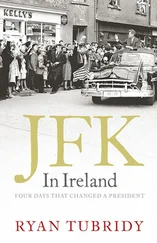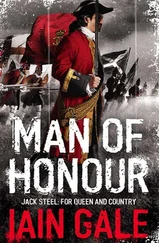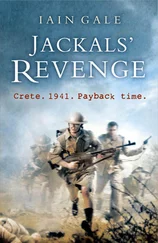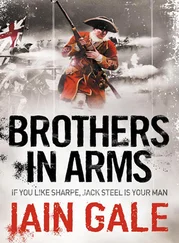De Lancey had left Brussels at 8 that morning, reaching the Quatre-Bras farm close on 10 o’clock. He and Wellington had ridden hard down the main road from Brussels, their advance party composed only of Somerset, Müffling and a half-troop escort of Life Guards. The remainder of the Duke’s staff – some forty officers, including their friend d’Alava, had followed close behind. They had been greeted by a suitably aggressive picket of green-coated Nassauers, Prince Bernhard of Saxe-Weimar, his superior General Perponcher and the Prince of Orange, all still jubilant at having held off what purported to be a sizeable French force. Of that force, however, there was as yet little immediate evidence. In fact Saxe-Weimar and Perponcher had gone against Wellington’s express directive to collect on Nivelles. Securing the authority of the Prince of Orange’s Chief of Staff, the enigmatic and talented General Constant-Rebecque, and in the knowledge that they might be hopelessly outnumbered, they had decided to stand at the crossroads. Naturally the Peer had not thought it politic to mention the fact this morning. For it was just possible, thought De Lancey with wry amusement, that Rebecque’s direct disobedience of an order from the greatest military mind on Earth might have saved the entire campaign.
De Lancey sat astride his horse at the centre of the highest point of what would be, when the army finally arrived, the Allied line. Following Wellington’s example he was clad in a dark blue civilian top-coat, rather than the regulation red tunic. What need had either man for show? Wellington might wear red and gold for parades at the Horse Guards, but in battle he preferred the plain clothes which told his men that here was a man of sober mind and quiet sensibility. The sort of man whom they knew they could trust to win a battle.
Like Wellington too, and the entire General Staff, De Lancey wore a simple black bicorn hat, fore and aft. He had also, since the last years of the Peninsular campaign, taken to imitating Wellington’s habit of strapping a change of clothes to the back of his saddle, and, in place of a pistol holster, a pen and paper, with the addition of a bulging map case and a deep morocco leather document wallet. He reached into it now, pulled out a small field telescope and brought it to his eye.
This was good ground. He was aware that there was not a pronounced reverse slope – the Peer’s preferred defensive ground – behind which to shelter an army from the enemy’s gaze and cannon fire. But it was a good position all the same, its virtues evident on this still, fine morning. Via the small circular lens he traversed the field, moving slowly from the left, along the line of a wood and a lake, through the small village of Quatre-Bras itself, with its few whitewashed houses around the key road junction, to the mass of a larger wood, marked on his map as the Bois de Bossu.
To the left the ground was open, laid mostly to cereal crops, which now stood impressively high. So high, he thought, that within one such a field it might be possible to hide an entire battalion. In the distance, though, on rising ground stood a farm – Pireaumont. In the centre ground lay another, Gemioncourt, with its high walls an ideal strongpoint. It was imperative that they should seize both before the French. In the far distance, beyond the Bossu wood, De Lancey could make out a third and fourth defensive structure, the two farms of Pierrepont. These too should be occupied by the Belgians before it was too late. A voice from his side made him take the glass from his eye.
‘No Crapauds yet, De Lancey?’
It was Alexander Gordon, one of the Duke’s aides and a close friend of both men, along with Fitzroy Somerset, the latter’s hooked nose and angular features giving him the absurd appearance of a diminutive Wellington.
‘None, I’m afraid. That wood may be good cover, but it makes it damnably hard to see who we’re fighting.’
‘Well, I am beginning to wonder,’ said Gordon with a knowing smirk, ‘exactly where the Prince’s “French corps” might be.’
‘I did hear a little popping musketry,’ interjected Somerset.
‘Ours or theirs?’ asked Gordon.
‘I … I couldn’t really say.’
De Lancey smiled. ‘Muskets or not, I can feel them there. Our reports suggest an entire corps. Perhaps more. Reille or d’Erlon. Probably under Ney. Cavalry too. We’ve had sightings of lancers.’
Gordon shuddered. ‘Well, we’d better make damned sure that our own cavalry are here before they do attack.’
Somerset spoke again. ‘I believe that the Prince has told his Grace that one of his Dutch cavalry brigades is on its way from Nivelles, even now.’
Gordon, unimpressed, sighed and looked despairingly to De Lancey. ‘Where is Uxbridge and the English cavalry? Do we know?’
‘On his way to Nivelles from Braine-le-Comte. Or so I’ve told the Peer. I had supposed that he might arrive here early in the afternoon. But I’m beginning to wonder whether perhaps I haven’t been a little hasty.’
Before leaving Brussels Wellington had asked De Lancey to draw up a detailed list of the exact dispositions of the army. This, after some deliberation, he had done, basing it on the orders he had sent out the previous evening. In his haste, though, and amid all the chaos of packing and getting dear Magdalene safely off to Antwerp, he was uncertain as to whether he had been thinking of the Duke’s first or second set of orders. It gave the impression of the army having advanced somewhat further east than in fact it had. He was far from happy with the document.
But he felt that he and the Peer had such a degree of understanding and such was the exigency of the hour that it would suffice. He had presented it to Wellington at 7.30, just as they were setting off, explaining its meaning as they moved out of the city. It was not, he had emphasized, quite as precise as he would have wished, but it did, he believed, convey the situation well enough. The Duke had been satisfied. But still De Lancey couldn’t help but feel that he might have committed a grave error. His troubled reverie was disturbed by voices. Somerset and Gordon had reined their horses round to greet the approaching figure of Wellington and some twenty of his staff. Spotting De Lancey, the Duke rode closer.
‘A good position, De Lancey. Is it not?’
‘Indeed it is, your Grace. Not ideal, perhaps, but I believe that we can make it do.’
‘My only concern is the speed with which the rest of the army will reach us. I have not been in such a very unpromising situation in the matter of reinforcements since, when would you say?’ He paused. ‘Well, I will tell you. Fuentes de Onoro. Portugal. Four years ago. You recall, William? We were a divided force then. Outnumbered and over-extended. But we beat them, gentlemen. And so here we are again. And we can do so again. Can we not, gentlemen? What have we exactly? Somerset?’
‘Our current strength comprises Prince Bernhard’s 2nd Brigade of Dutch and Belgians, your Grace. That is the 2nd Nassau infantry of some 2,800 men and the regiment of Orange-Nassau, numbering perhaps 1,500. They have been here since yesterday and early this morning were reinforced by the remaining units from Baron Perponcher’s division. That is Bylandt’s brigade of Dutch and Belgians, your Grace. Principally militia. In total I believe that we can currently field some 7,500 men. With eight cannon.’
‘And when might we expect to see the first of our own lads? What of Picton? De Lancey. Your report.’
‘As I said, your Grace, I believe that the reserve will be in Genappe by noon. They will be the first to reach the field. Perhaps by two o’clock, your Grace. The cavalry should not be far behind.’
‘Well, we shall see. In any event I must send a despatch across to Blücher. He must have my assurance. We cannot afford to have his generals persuade him to turn. Without him, gentlemen, we are lost. We must persuade Prince Blücher that we shall soon be in a position to come to his aid. And to judge from your note of this morning, De Lancey, I see no reason to suppose otherwise.’
Читать дальше












